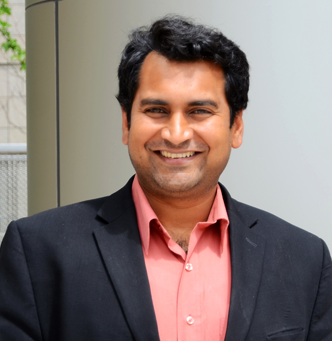 |
|
| Guangping Gao, PhD | |
 |
|
| Hemant Khanna, PhD |
Ophthotech Corporation has initiated a research collaboration with UMass Medical School and its Horae Gene Therapy Center focused on applying novel gene therapy technology to discover and develop next-generation therapies for the treatment of ocular diseases.
The biopharmaceutical company is working with UMMS to utilize the school’s minigene therapy approach and other novel gene delivery technologies to target retinal diseases. The laboratories of Guangping Gao, PhD, the Penelope Booth Rockwell Chair in Biomedical Research, professor of microbiology & physiological systems, founding director of the Horae Gene Therapy Center & Vector Core and co-director of LI Weibo Institute for Rare Diseases Research; and Hemant Khanna, PhD, associate professor of ophthalmology & visual sciences, will play a key role in this collaboration. Dr. Gao is a pioneer in the development of a novel adeno-associated virus (AAV) family for gene therapy. Dr. Khanna’s research focuses on the molecular mechanism of inherited ocular disorders and using this knowledge to develop novel treatment approaches for them. UMMS has granted the company an option to obtain an exclusive license to any patents or patent applications that result from this research.
“Advances in gene therapy technologies have been promising and may provide transformational, next-generation therapies for patients with ophthalmic disease,” said Glenn P. Sblendorio, chief executive officer and president of Ophthotech. Sblendorio said the synergy between the gene therapy experts at UMMS and the clinical experts at Ophthotech has the potential to advance innovative solutions to treat retinal diseases.
Gao said the goal of the Horae Gene Therapy Center is to develop the next generation of gene delivery technology to provide the most efficient and safe gene transfer to patients.
“Researchers seeking cures to diseases of the eye have led the way in innovation in gene therapy,” said Terence R. Flotte, MD, the Celia and Isaac Haidak Professor of Medical Education, executive deputy chancellor, provost and dean of the School of Medicine at UMMS, and a specialist in gene therapy. “This collaboration sets the stage for future breakthroughs in this field.”
“The translatability of any therapeutic strategy should be based upon sound scientific premise and pass multiple validation steps,” Dr. Khanna said. “Our team of investigators in the Horae Gene Therapy Center and the Department of Ophthalmology & Visual Sciences is in a unique position to fulfill these requirements for developing treatments of retinal degenerative diseases.”
The use of minigenes as a novel therapeutic strategy seeks to deliver a shortened but still functional form of a large gene packaged into a standard-size AAV delivery vector commonly used in gene therapy. The minigene strategy may offer an innovative solution for diseases that would otherwise be difficult to address through conventional AAV gene replacement therapy.
Related stories on UMassMedNow:
Horae Gene Therapy Center announces collaboration with Spark Therapeutics
Horae Oriental endows Gene Therapy Center at UMass Medical School with $2M gift